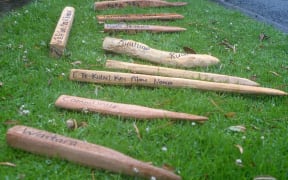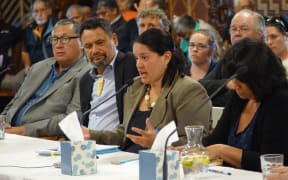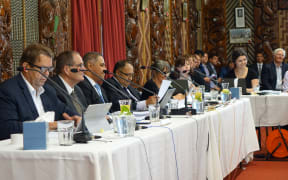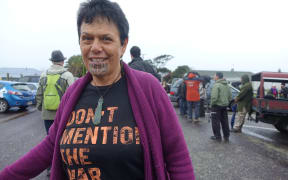The New Plymouth District Council is being urged to be up front about the millions of dollars it has earned from land stolen from Waitara hapu in the 1860s.
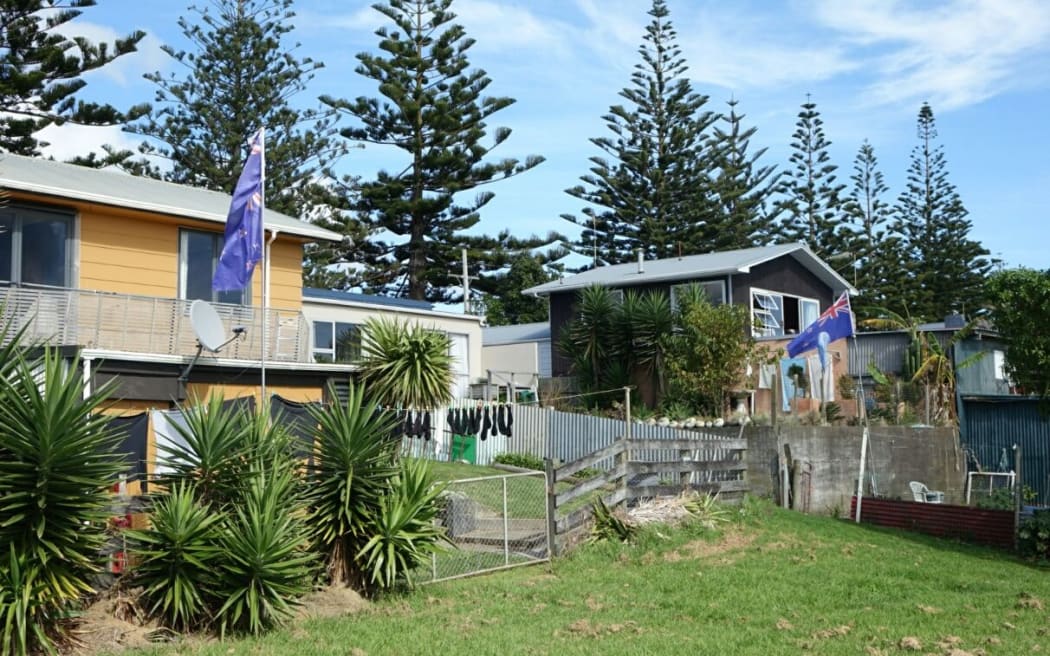
Some of the leasehold properties covered by the bill. Photo: RNZ / Robin Martin
Both opponents and those in favour of a bill designed to resolve historical grievances in the North Taranaki town want negotiations to include an acknowledgement that the council has pocketed up to $140 million from the land over the years.
The council-sponsored Waitara Lands Bill is the latest attempt to unravel a dispute that has simmered since land was illegally confiscated after the first Taranaki War in 1860.
If adopted, the bill would allow the freeholding of 780 properties and return some land to Te Ātiawa - which initially supported the bill but has since backed out.
Tamaki Treaty Workers spokesperson Carl Chenery said the bill ignored the fact the council had reaped substantial rewards from the leasehold land.
"What seems to have been overlooked is the benefits that the community and the council have already received through lease payments from these confiscated or stolen lands over the 150 years and that analysis hadn't been done."
The group used the Official Information Act to get access to council documents and did their own analysis.
They found the council had pocketed between $95m and $140m, excluding interest and any money from land sales.
Mr Chenery, who believed the land should be returned to the Manukorihi and Otaraua hapu, said the figures should be included in any discussion about the Waitara land.
"I think there is a responsibility on the council to communicate that out to the public when their selling the benefits of the bill they should also be communicating what has already been received."
Otaraua hapu chair Rawiri Doorbar said the numbers reinforced what the hapu had always known.
"The community has benefited from our stolen lands while our community of Waitara, our Māori community of the hapu of Waitara, hasn't been able to benefit at all as the legitimate owners."
Mr Doorbar said the council should be transparent about what it had earned, but ultimately the money was of no interest to Otaraua.
"Honestly, it's inappropriate to talk about money and this whenua in the same breath. Historically it's regarded as blood money, any money that's gleaned out of this land.
"We simply have to have that land returned so this whole matter can be put to rest."
In 2014, Te Ātiawa turned down the opportunity to buy the land with $23 million of its Treaty settlement money, leaving the ball back in the council's hands.
Waitara leaseholder Trent Hall supported the bill, but he too wanted the council to show its hand.
"The council was given the land and then they tried to sell it to the Crown and then to iwi via the Crown, and now they are trying to sell it to the leaseholders for an exorbitant amount of money.
"They've made a lot of money off it and we don't believe they need to have that kind of money come back to them."
Leaseholders should get the same deal Te Ātiawa turned down in 2014, Mr Hall said.
That would work out at about $30,000 per section, as opposed to market rates of closer to $100,000.
In its submission on the bill to the Māori Affairs Select Committee, the council said the Local Government Act required it to find a cost-neutral solution for the Waitara leases, which now had a rateable value of $86 million.
Council acting chief executive Alan Bird declined an interview, saying the bill was still before the select committee.
However, he said the Tamaki Treaty Workers figure was incorrect.
The select committee is due to report back on the bill at the end of the month.
